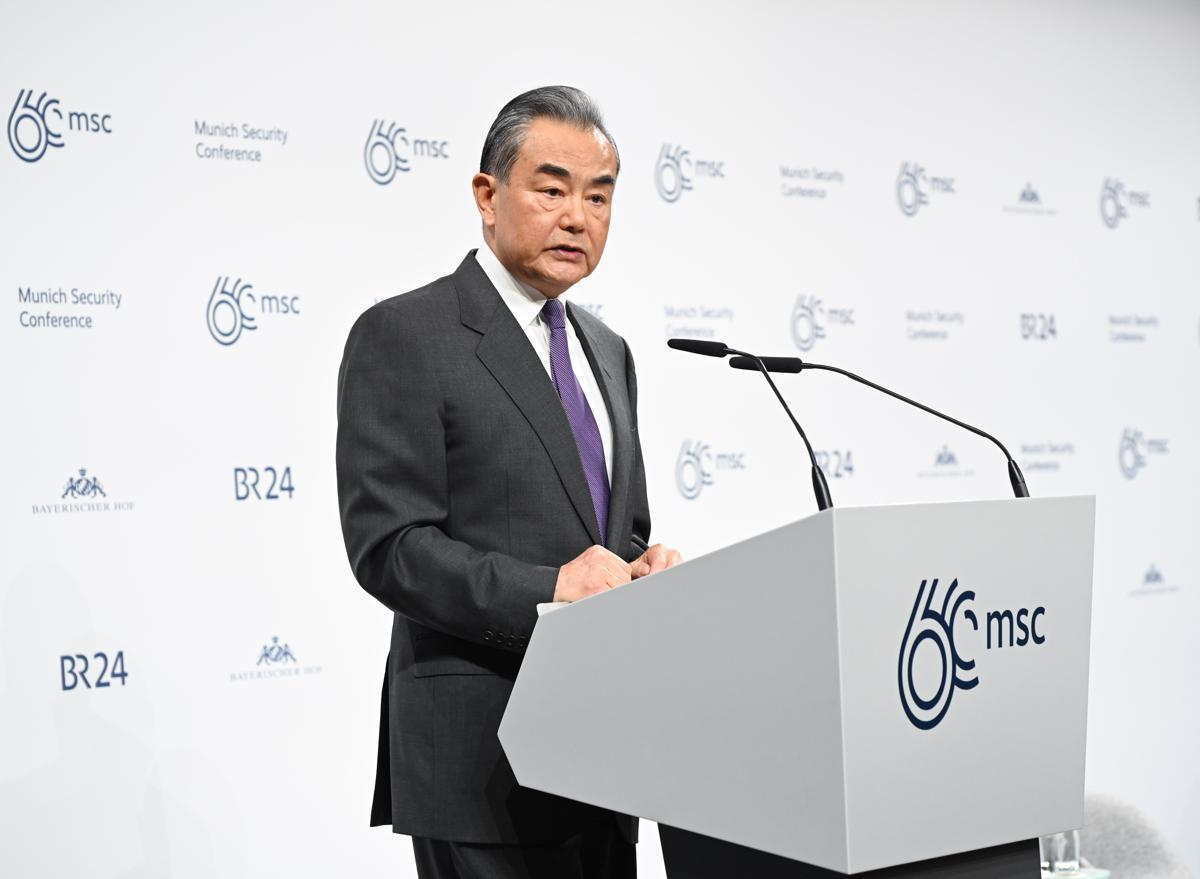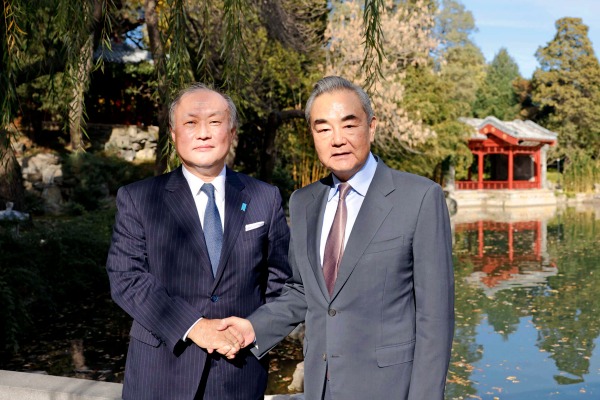Beijing plays key role in championing common security


The voices of the top diplomats of the United States and China at the 2024 Munich Security Conference were wake-up calls for the rest of the world, especially European Union countries and their policymakers, about lose-lose or win-win prospects for international security and peace.
"If you're not at the table in the international system, you're going to be on the menu," US Secretary of State Antony Blinken said at a joint occasion with German and Indian counterparts at Munich on Feb 17.
It is sad that, even in the face of the bitter reality of daily deaths in the Russia-Ukraine and Israel-Palestine conflicts, the top US diplomat is resorting to law-of-the-jungle habits and coercive threats for others to follow the US' pursuit of zero-sum thinking. And, ironically, it is the US that often breaks the rules-based order at the international table.
It is a good omen that China has provided stable policy expectations, acted as a responsible major power, and promoted win-win cooperation with its governance wisdom as well as its initiatives and proposals.
While giving a speech during the Munich Security Conference, Foreign Minister Wang Yi, also a member of the Political Bureau of the Communist Party of China Central Committee, highlighted China's vision for common security — in which each member's core concerns are indivisibly addressed — as well as China's role as a stabilizing force for world stability and peace.
Wang recapped China's political principle in promoting political settlements of the crises in Gaza and Ukraine. It has been proactively facilitating confidence-building measures and creating conditions for peace negotiations.
Wang specified that the United Nations' authority and central role are important and should not be weakened. Thus, enhancing multilateralism should be the joint response amid the challenges of protectionism and power politics.
Undoubtedly, China and its major policies firmly act as a stabilizing force in a turbulent world. China once again stands out in presenting a strategic road map for stability, sustainability, political harmony and peace in the world.
However, Blinken said that regarding strategic competition, "there's no doubt that we have one with China". Furthermore, he said that "when it comes to other countries, the point is not to say to country X, Y or Z, 'You have to choose'; the point is to offer a good choice."
Ironically, the choice Blinken offers, either about Ukraine or Gaza, as evidenced again by the US veto of the most recent UN Security Council resolution calling for an immediate cease-fire in Gaza, is not for a cease-fire or an end to conflict, but for prolonging the bombing, more deaths and destruction of cities and towns, more spending by US allied nations, and more money for the US military-industrial complex.
The choice, coupled with the economic bleeding of NATO allies in Europe, suggests that the US' transatlantic partners and like-minded countries should invest in defense and deterrence, while selectively restricting the pursuit of mutual benefits to politically like-minded states.
Instead, Chinese wisdom as summarized by the Global Security Initiative has presented doable strategic priorities to achieve global peace, stability and harmony. Commendably, China has been persistent in promoting cooperation among major powers, addressing global hot spot issues, enhancing global governance and accelerating global economic growth.
The Global Security Initiative's message is loud and clear that global cooperation and unity may be achieved through creating and achieving win-win situations for all. The global powers should avoid self-destructive mentality and policies to undermine the common interests of others.
Furthermore, new dimensions of emerging security realms, mainly space, the deep sea and cyberspace, should be dealt with while maintaining a collaborative spirit.
China champions the concept of indivisible security for all in line with a human community of shared future. This is in sharp contrast to US-led Western military-centered formations to extend strategic hegemony at the cost of others' interests and even lives.
In an increasingly multipolar world, emerging global institutions and organizations are promoting the spirit of transnational coordination and collaboration. BRICS and the Shanghai Cooperation Organization, for example, continue to work on multilateral security alignments across continents.
The US and the EU should discard policies of hegemony and economic exploitation and avoid forming national narratives on the basis of false notions of national security. The world, with its varied crises, badly needs an end to conflicts, common security for all, inclusive development to eliminate poverty and unemployment, and joint efforts to fight climate change.
The author is executive director of the Center for South Asia and International Studies in Islamabad, Pakistan.

































